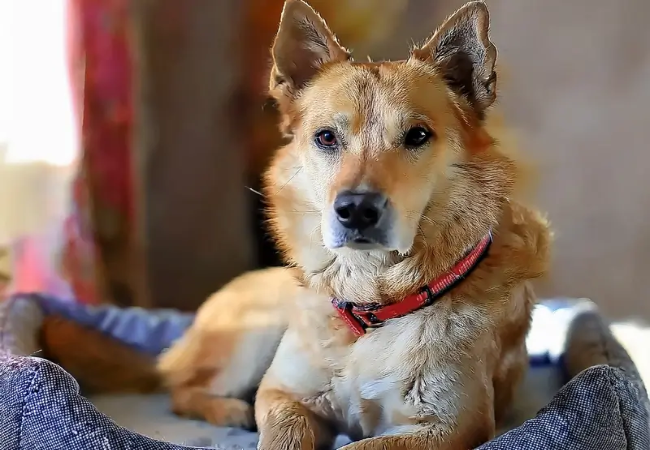Chinook 2025 Guide: Temperament, Care & Training 🐶

In this article
Chinook 2025 Guide: Temperament, Care & Training 🐶
By Dr. Duncan Houston BVSc
🐾 The Chinook is a rare, versatile working dog originally bred for sled pulling in New Hampshire. Recognized for its gentle temperament and strong work ethic, it's now an affectionate family companion favored by active households.
1. Origins & History 📜
Developed in the early 1900s by Arthur Treadwell Walden of Wonalancet, NH, the Chinook descends from a Greenland sled dog and a Mastiff/St. Bernard–type farm dog. The foundational male, also named Chinook (b. 1917), became the breed’s namesake and key progenitor—his descendants form the core lineage today.
- Walden bred Chinook to Belgian Sheepdogs, German Shepherds, and Canadian Eskimo Dogs to refine traits.
- The breed nearly went extinct after breeder Perry Greene died in 1963, dwindling to only 11 dogs by 1981. Dedicated breeders revived the population to around 800 registered worldwide.
- The Chinook became New Hampshire’s state dog and was admitted into AKC's Working Group in 2013.
2. Physical Characteristics & Temperament
Appearance
- Height: 21–26″; weight: 45–90 lb (20–41 kg) depending on sex.
- Coat: Tawny double coat—dense and insulating, with potential darker markings on muzzle and ears.
- Ears: Medium, often dropped but sometimes erect; tail is saber-shaped.
Temperament
Chinooks are intelligent, calm, patient, and eager to please—ideal family pets and working dogs.
- Affectionate and protective, especially around children; they’re not aggressive and make poor guard dogs.
- Social with other dogs, but may be reserved with strangers until they feel safe.
- High trainability and willingness to work make them suited for sledding, skijoring, agility, and obedience.
3. Grooming & Living Needs
- Exercise: Require daily vigorous activity—2+ miles walk/hike, plus mental engagement, ideally chores like pulling, tracking, or play.
- Grooming: Weekly brushing year-round; twice-weekly during seasonal shedding in spring/fall.
- Climate: Adapted to cold—heat affects them more than cold; ensure proper cooling and water in warm climates.
- Living conditions: Thrive in homes with space or rural environments; indoor-only life without activity can lead to restlessness.
4. Health & Lifespan ⚕️
Chinooks typically live 12–15 years and are generally healthy, but can have genetic predispositions.
Common Health Concerns:
- Hip Dysplasia: Manifesting as lameness or bunny‑hopping; manage with joint supplements and weight control; surgery in severe cases.
- Cryptorchidism: ~10 % incidence in males; consult vet if testes not descended by 6 months.
- Atopy (Skin Allergies) & Epilepsy: Occur in some lines; monitor for signs and treat early.
- Hypothyroidism: Occasionally reported; routine bloodwork recommended.
5. Training, Socialization & Enrichment
- Start training early with positive reinforcement; socialization by 16 weeks is key to preventing shyness.
- Engage their intelligence: puzzle toys, scent games, and task-based activities like sledding, packing, or agility.
- Separation anxiety may occur if left alone; consider crate training, doggy daycare, or Ask A Vet's recommendations for calming supplements 🧠.
6. Is a Chinook Right for You?
Best for: Active households with outdoor access & consistent structure. Ideal companions for families, singles, seniors, or new dog owners who commit to their exercise and training needs.
Not suitable if: You live in a small city apartment, travel frequently without accommodations for your dog, or can't meet their activity and grooming demands.
7. Vet Care & Ask A Vet Support
- Annual exams, joint and thyroid screening, health clearances for breeding, and pre-purchase health checks are recommended.
- Ask A Vet offers remote consultations for joint issues/x-rays, allergy guidance, behavioral advice, and emergency support—ideal between clinic visits.
- 8. Rescues, Breeders & Registration
- UKC & AKC recognized—AKC Working Group since 2013; UKC since 1991.
- Limited litters (~100 per year worldwide); costs typically $1,500–2,500.
- Rescue opportunities exist via Chinook-specific rescues; ensure vet check before adoption.
Conclusion
The Chinook is a rare working dog with striking beauty, athleticism, and a loving, dependable temperament. With the right exercise, care, and early training, this loyal companion can excel in families that value adventure, structure, and canine partnership. Consult Ask A Vet for personalized care guidance, training tips, and proactive health support!
— Dr. Duncan Houston BVSc, Ask A Vet Blog Writer






